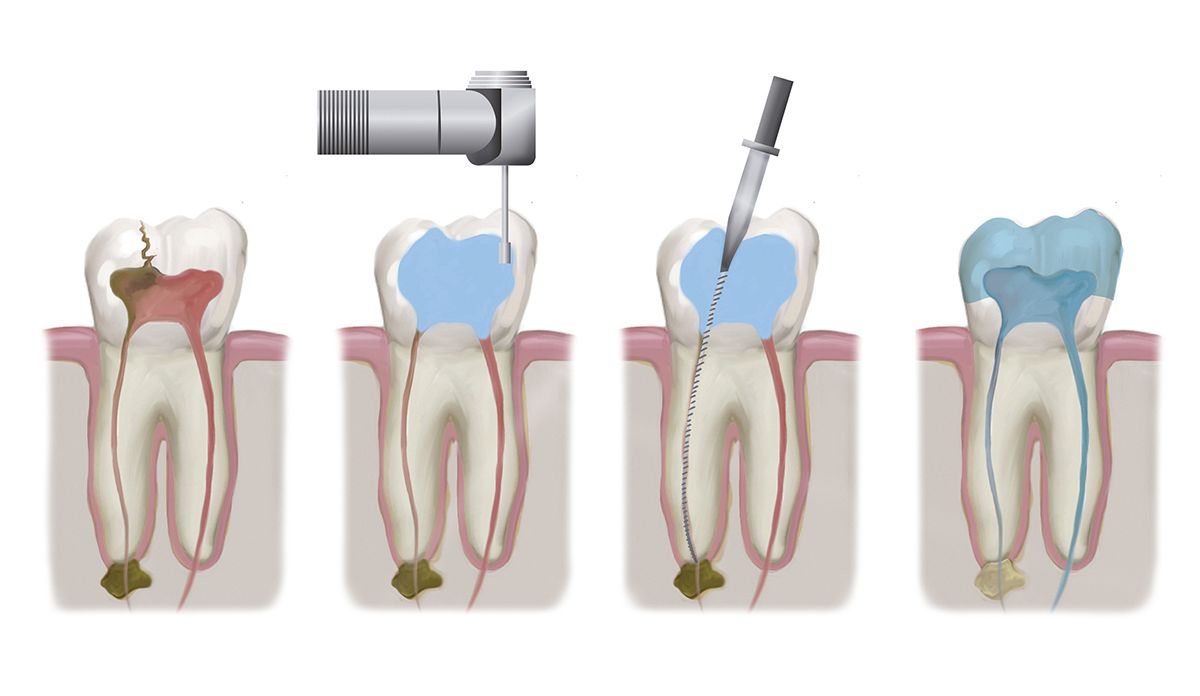How Long Does Root Canal Therapy Take?
 When a tooth suffers from decay or damage it should be treated as soon as possible. When dental damage is neglected, bacteria can reach the pulp chamber of the tooth, where blood vessels, nerves, and sensitive tissues lie. This can cause a root canal infection.
When a tooth suffers from decay or damage it should be treated as soon as possible. When dental damage is neglected, bacteria can reach the pulp chamber of the tooth, where blood vessels, nerves, and sensitive tissues lie. This can cause a root canal infection.
Dr. Bruce Wilderman offers his Philadelphia, PA, patients root canal therapy to eliminate infection and restore the integrity of a tooth. Many people hesitate to undergo root canal therapy, because they fear it will be a long, painful procedure. That is actually not the case. Here we go over how long root canal therapy takes and what patients can expect during the procedure.
What to Expect during Treatment
During root canal therapy, infected tissues are removed from the center of the tooth. To gain access to the pulp chamber a small hole is made at the top of the tooth. After eliminating damaged tissues, Dr. Wilderman reshapes the root canals and cleans down the length of the roots to eliminate any further bacteria or signs of infection. After the tooth has been cleaned, the canals are filled with a rubber-like compound. This fortifies the tooth so that it is structurally sound.
As a final step of root canal therapy, Dr. Wilderman applies either a dental filling or a dental crown. These restorations restore the outer portion of the tooth and provide an added layer of protection to block out bacteria and prevent a future infection. The degree of damage that is present will determine which restoration is applied. For mild to moderate damage, a tooth-colored filling should be sufficient. If damage is more severe, a dental crown will be recommended.
How Long Will My Procedure Take?
The length of root canal therapy treatment is largely dependent on how extensively the tooth has been damaged and how far the infection has progressed. The average root canal therapy treatment session takes about 60 minutes, but the procedure can be as short as 30 minutes and as long as 90 minutes.
If a patient is having a dental crown placed over the treated tooth, treatment will be longer. After completing root canal therapy, Dr. Wilderman will take a mold of the treated tooth and surrounding teeth. This mold is used to design a dental crown that fits comfortably and securely. Dental crowns are fabricated in a dental laboratory and not immediately ready for placement. Instead, a temporary crown is applied to the tooth until the permanent crown is complete and patients return for placement.
Is Root Canal Therapy Painful?
At just around an hour, root canal therapy does not take a lot of time. However, an hour can feel very long if the procedure is painful. Fortunately, we use advanced technology and techniques to promote patient comfort throughout treatment. Before starting root canal therapy our Philadelphia patients receive local anesthesia. The anesthesia is delivered using the Wand system, which is computer guided. This system is more comfortable than a syringe, and delivers anesthesia at precise rate and flow, so that patients maintain their comfort level from the beginning to the end of treatment.
Get In Touch
If you believe that you are suffering from a root canal infection, Dr. Bruce Wilderman can perform root canal therapy to restore oral health, strength, and comfort. To learn more about treatment, send us a message online at your earliest convenience, or call our Philadelphia practice at (215) 340-1199.


